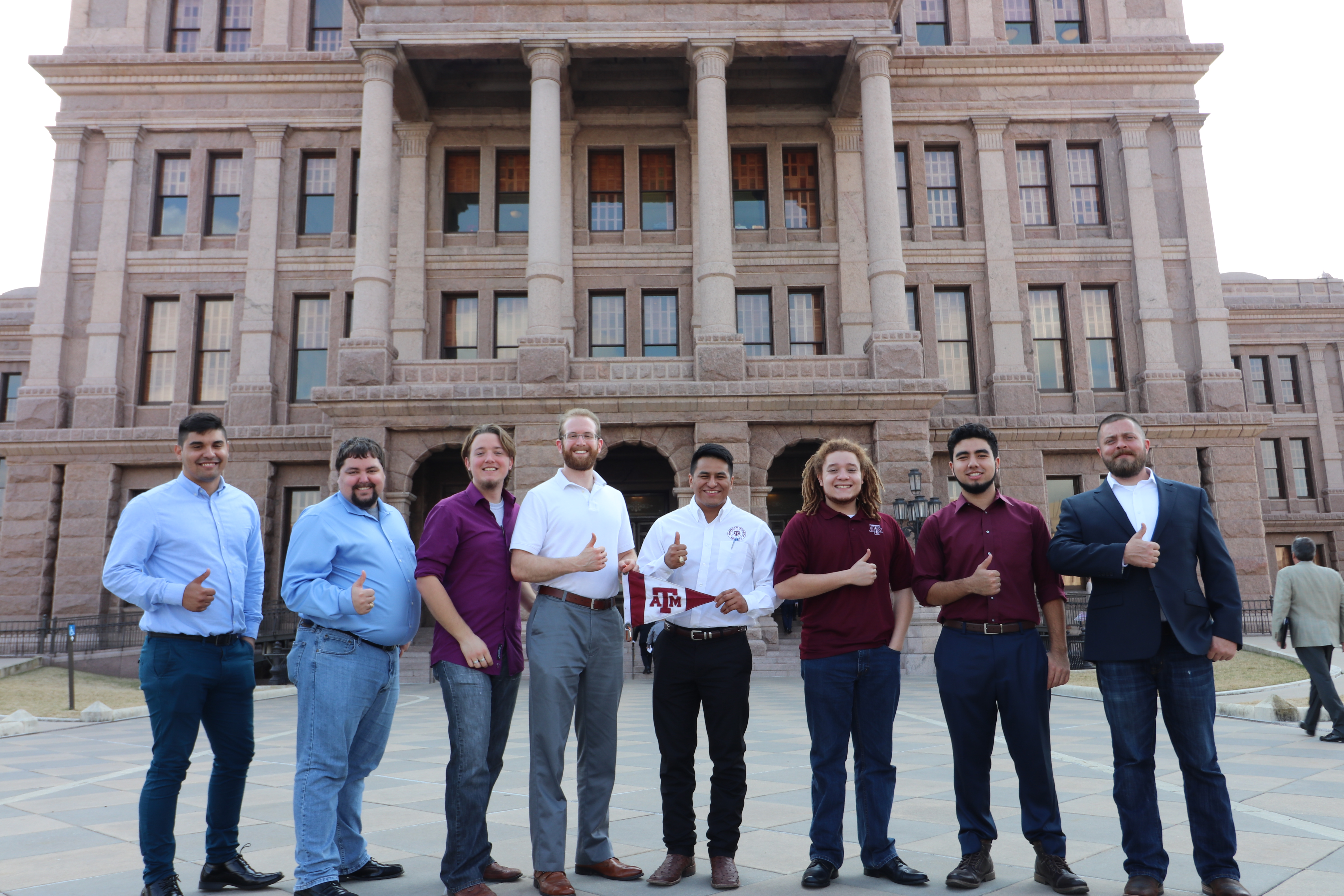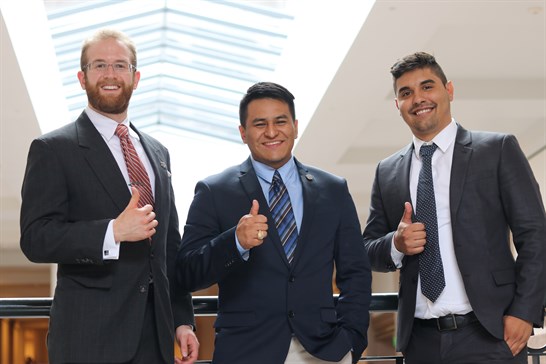
The American Nuclear Society (ANS) Student Chapter at Texas A&M University organized and attended the Texas Nuclear Student Delegation (TNESD) on Feb. 12-14 in Austin, Texas.
The trip was led by Texas A&M students and was established as a mirror initiative to the Nuclear Engineering Student Delegation, where students from across the nation visit Washington D.C. to advocate to policymakers regarding nuclear engineering education and industry-related topics.
“The goal of the trip is to be the voice of, and represent, the nuclear engineering students here in Texas,” said Victor Ibarra Jr., vice president of the Texas A&M student chapter of ANS. “But, we take a broader approach so that anything regarding education we also take into account and advocate for.”
The 2017 delegation marks the second TNESD since the initial delegation in 2015, where Ibarra, then a freshman, went with five other nuclear engineering students to advocate to policymakers at the state level. This year, Ibarra and students from other ANS student chapters came together to organize the event. This year’s delegation had 13 delegates and was comprised of students from Texas A&M, The University of Texas at Austin and Texas A&M University-Kingsville. For Ibarra and the other Texas A&M attendees, it was good to see the delegation grow.
“This was a big issue I saw at the first conference because we wanted a lot of other schools with engineering programs to participate but they didn't seem interested at the time,” Ibarra said. “I’m glad to see it growing and hope it continues to do so.”

As interest has grown, the students hope the conference also grows as an outlet for improving the understanding of policymakers and others regarding nuclear engineering. The students also seek the advice of legislators on what they can best do to make an impact.
“We want to inform these policymakers, work with them and learn from them about this legislative process so that it can reach some point of impact,” Ibarra said. “We have a lot of students learning about the legislative process through these experiences and how important this is and how they can have more of an impact as normal Residents. I think it does wonders for all of the delegates that were involved.”
According to Ibarra, there are policies currently governing nuclear engineering that were set in place generations ago. As nuclear engineering students, the delegates hope to spur a progression toward informed change to craft future policies that will better benefit the industry and nuclear engineering students. For Ibarra, his experience as a delegate has inspired him to one day pursue a career in politics where he feels can make a difference.
“I think that participating in TNESD and getting closer to government affairs will lead me down a path that will let me work for some sort of government agency and act as a liaison to inform policymakers,” Ibarra said. “I want to get a job somewhere in a political area so that I can be a liaison for the nuclear industry and start advocating for taking America in a more accepting attitude toward nuclear energy and its applications.”